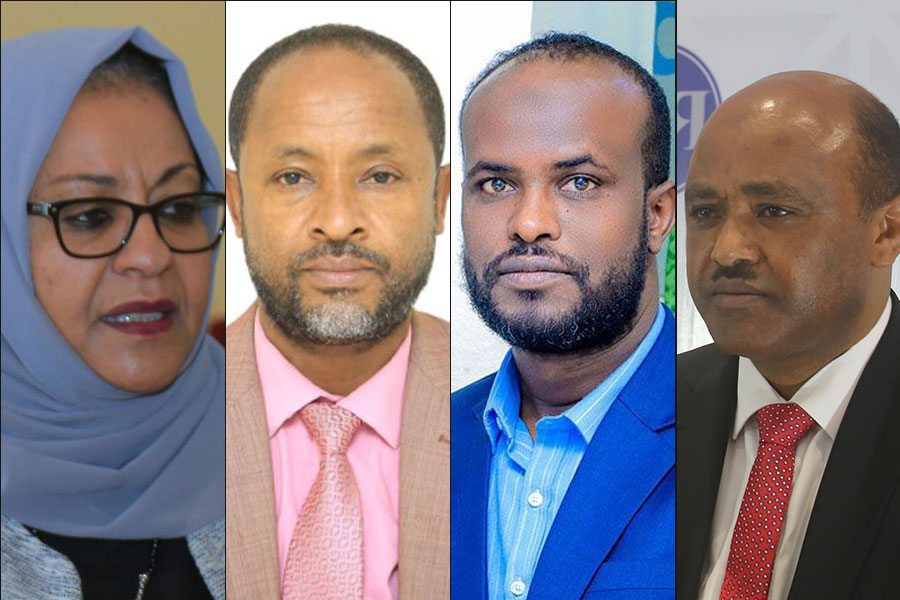
Life Matters | Apr 26,2019
Apr 30 , 2021
By Christian Tesfaye
A two-day leader’s summit over climate change was held last week, which included heads of state from several countries, including China and the United States. The latter promised to cut emissions by over half by 2030 from its levels in 2005. China reiterated it would reach net-zero carbon emissions by 2060.
Politics being what it is, such pledges may not hold much water. But it should also be notable that over the past two decades, political consensus and social sentiment have been steadily moving towards stringent climate policies as the damage being done to the environment – from floods to forest fires – is becoming more evident. It is an international agenda that now commands multi-million dollar programmes by multilateral organisations and is given ever greater importance in academia. In international law, there is a small but notable movement to label acts of environmental devastation as a crime against humanity.
The issue is no less pertinent in Ethiopia. The country may not be a major polluter, but the effects are evident from flooding to forest fires and droughts. The country is paying a major price and will continue to face damages as population growth and increasing consumption of resources will likely worsen conflicts. The economic and socio-political cost can not be ignored.
There are advantages to hitching a ride on the growing global urgency to address climate change challenges. On the surface, it could be a foreign policy tool that lends itself to getting around development issues. For instance, the best selling point of the Grand Ethiopia Renaissance Dam (GERD) is that - while dams usually have controversies - it uses renewable energy to generate much-needed energy, unlike coal burning, a significant source of pollution.
More importantly, it will help to follow the money, and indeed much developmental aid is being poured into climate change mitigation. And for this, there is much need in the country, especially where biomass is concerned. Over half of Ethiopia’s population lacks access to electricity. Thus the gap is filled with energy derived from biomass. This mainly means charcoal that emits harmful gases into the environment, affects the health of households and requires the cutting and burning of forests.
More effective than a tree-planting campaign in mitigating this would be providing communities with incentives – such as cash handouts – to look after forests in their area. This will also provide them with jobs as an alternative livelihood instead of razing forest areas for agricultural land.
There are initiatives, by the likes of the World Bank, along these lines. It gets to the heart of what is pushing the destruction of natural habitats. Normally, people do not have a need to see forests burn or trees cut down. But it is hard to make the same argument under circumstances where their livelihoods are threatened. To put food on the table, they are forced to cut trees for subsistence farming and burn and cut down trees to use the wood as fuel.
Empathising with these communities is necessary to address the issue. They need to be empowered and become beneficiaries of forest conservation for them to feel it is a valuable resource.
It is also critical to invest in power distribution and transmission lines. Over a fifth of all power generated in Ethiopia is lost during transmission, leading to interruptions for households, businesses and manufacturers. This leads to more demand for biomass and fuel to generate power through alternative energy sources, such as generators. Above and beyond investments in main-grid energy production, this requires pouring resources into distribution lines and mini-grids. The gap could be filled by getting on the bandwagon of an enthusiastic and urgent global clime consensus.
PUBLISHED ON
Apr 30,2021 [ VOL
22 , NO
1096]


Life Matters | Apr 26,2019

Sunday with Eden | Dec 31,2022

Life Matters | Oct 08,2022

Fortune News | Mar 30,2024

Life Matters | Aug 24,2019

Viewpoints | Jun 20,2020

Covid-19 | May 31,2020

Advertorials | Feb 12,2024

Viewpoints | Mar 06,2021

Viewpoints | Jul 13,2019

My Opinion | 131507 Views | Aug 14,2021

My Opinion | 127863 Views | Aug 21,2021

My Opinion | 125841 Views | Sep 10,2021

My Opinion | 123471 Views | Aug 07,2021

Dec 22 , 2024 . By TIZITA SHEWAFERAW
Charged with transforming colossal state-owned enterprises into modern and competitiv...

Aug 18 , 2024 . By AKSAH ITALO
Although predictable Yonas Zerihun's job in the ride-hailing service is not immune to...

Jul 28 , 2024 . By TIZITA SHEWAFERAW
Unhabitual, perhaps too many, Samuel Gebreyohannes, 38, used to occasionally enjoy a couple of beers at breakfast. However, he recently swit...

Jul 13 , 2024 . By AKSAH ITALO
Investors who rely on tractors, trucks, and field vehicles for commuting, transporting commodities, and f...

Jun 28 , 2025
Meseret Damtie, the assertive auditor general, has never been shy about naming names...

Jun 21 , 2025
A well-worn adage says, “Budget is not destiny, but it is direction.” Examining t...

Jun 14 , 2025
Yet again, the Horn of Africa is bracing for trouble. A region already frayed by wars...

Jun 7 , 2025
Few promises shine brighter in Addis Abeba than the pledge of a roof for every family...

Jun 29 , 2025
Addis Abeba's first rains have coincided with a sweeping rise in private school tuition, prompting the city's education...

Jun 29 , 2025 . By BEZAWIT HULUAGER
Central Bank Governor Mamo Mihretu claimed a bold reconfiguration of monetary policy...

Jun 29 , 2025 . By BEZAWIT HULUAGER
The federal government is betting on a sweeping overhaul of the driver licensing regi...

Jun 29 , 2025 . By NAHOM AYELE
Gadaa Bank has listed 1.2 million shares on the Ethiopian Securities Exchange (ESX),...